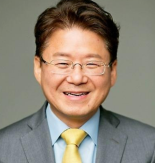
KENOSHA -- President Joe Biden’s meeting in November with China’s leader Xi Jinping in Woodside California is important for symbolic and more substantive reasons. Xi is under great and growing pressure from an increasingly troubled economy.
Slow growth, high youth unemployment, a collapsing housing market, multiplying bad loans, and the corrosive costs of corruption are among the host of problems plaguing the efforts of China’s leaders to foster capitalist investment without abandoning communist dictatorship.
There was an acknowledgment that the two great powers were competitors but also an emphasis on specific areas of cooperation. These include new accords addressing collaborative law enforcement, with emphasis on the enormous – and enormously profitable – illicit global drug trade.
Biden and Xi met in the context of the APEC Summit in San Francisco. The Asia Pacific Economic Cooperation organization is an effective mechanism promoting collaboration.
The brutal Korean War of 1950 to 1953 involved direct combat with China’s forces. That war made the Cold War global and set the stage for intense ongoing conflict. President Richard Nixon’s historic 1972 visit to China opened the door for change.
In 1992, China’s leader Deng Xiaoping declared “People’s Socialism,” sparking economic transformation. Yet China remains closed politically, and Beijing grows increasingly harsh in punishing dissent.
Jack Ma, the brilliant founder of Alibaba, a conglomerate comparable to Amazon, publicly criticized financial regulations. Harsh punitive crackdowns followed, including a delay of the initial public stock offering of Ant, a financial affiliate of Alibaba.
Rigid repression of political freedom in Hong Kong is now a fact.
We must continue to condemn this behavior. Specifically, U.S. policies should reinforce the important economic influence of democratic Taiwan. This island facilitates the economic revolution of China. The Economic Cooperation Framework Agreement with Beijing has opened mainland markets directly to Taiwan.
An important mechanism for handling conflict with China is the United Nations, in particular, the International Monetary Fund (IMF) and the World Trade Organization. The UN is the legacy of President Franklin D. Roosevelt of the U.S. and Prime Minister Winston Churchill of Great Britain. Commitment to the UN followed from the Newfoundland meeting of the two leaders, held off the Canadaian coast in August 1941 – historic, farsighted and poignant. This was months before the attack on Pearl Harbor.
Annual meetings of the IMF and World Bank, which aid poor nations, regularly held in Washington D.C., confirm the strength of UN economic institutions, and U.S. ties. The influence of developing nations, which China actively cultivating, is expanding. However, there is no longer the automatic anti-U.S., anti-West majority in the UN General Assembly characteristic of the Cold War.
This confirms the long-term wisdom of Anglo-American support for relatively open global economic relations, including assistance for poor countries seeking economic progress. Today, that means working through the UN, in particular the economic entities that mitigate trade and financial conflict.
The Trump administration rightly emphasized China’s commercial espionage, closely tied to ongoing strategic military expansion and ambitious international goals. However, that administration’s confrontational public rhetoric did not accompany a disciplined, sustained strategic approach that coordinated policy over time.
The Biden administration so far shows more discipline. The low-key meeting of Biden and Xi indicates serious, methodical diplomacy.
In ancient China, Sun Tzu described a patient, indirect strategic approach in his book “The Art of War.” Washington should overtly emulate that style, especially after the disruptive, erratic character of U.S. foreign relations during the rocky Trump regime.
Copyright ⓒ Aju Press All rights reserved.




